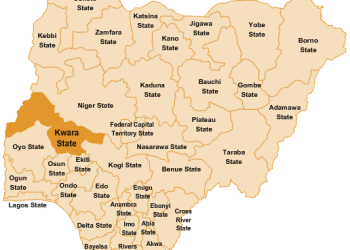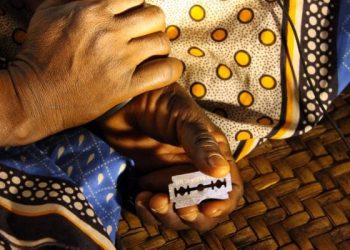The recent confusion in the education sector, brought about by the rumoured cancellation or scrapping of the Senior School (SS III) class from the secondary school system, deserves timely and careful attention.
The wind of the rumour got to parents and guardians through their children and wards, who returned from school to break the “cheering news,” which the Federal Ministry of Education has since come out to debunk and claimed that the information could only be true in the wider imagination of those peddling the rumoured cancellation.
In fact, according to the students, they were informed by the management of their schools about the Federal Government’s plan to cancel SS III class and terminate the senior school arm of secondary school system at SS II to reintroduce form five, which it used to be prior to the introduction of the 6-3-3-4 system of education.
The tradition secondary school system of forms one to five, was changed and replaced in the early 80s with the 6-3-3-4, apparently to pave way for technical and vocational education for students, whose mental capacity could not cope with the intellectual demands of higher education.
With the system, the popular sixth form, otherwise known as the Higher School Certificate (HSC) was scrapped from the system, while the 6-3-3-4 system, which provides for six years primary school education, three years of junior secondary school, three years of senior secondary school programmes, and four years of university or higher institution education was adopted nationwide as the national education policy.
Based on the system, students who are regarded to have low mental capacity for further studies, will after the compulsory first three-year junior secondary school proceed to technical school to acquire functional skills, while those with zeal for further education will go to senior school section and to the university.
To push the policy, provisions were made by the Federal Government that spent several millions of naira to acquire and distribute relevant technical tools and equipment to all schools nationwide.
Little did the policy take off than it disappeared and crumbled like a pack of cards, for lack of policy direction on the part of the government that introduced the policy in the first instance, leaving the obsolete tools and equipment rotting in some of the schools, while in some like Lagos State schools they had been sold by the state government.
So, when the rumour broke few weeks ago, it was another welcome development to parents and students, as well as other stakeholders, who had hitherto queried the existence of the SS III class, when in actual fact the implementation of the 6-3- 3-4 policy had since been dropped.
However, in a telephone call to the Director of Press of the Federal Ministry of Education, Mr. Ben Gwoong, he dismissed the development as strange to the Federal Government as there was no basis to suggest the cancellation of the class when the country’s education system has not changed.
To prevent another policy somersault, the Federal Government through the Education Ministry should come out with a clear-cut policy direction on reviving the HSC, but in doing this, there is the need to be conscious of the SS III class, which has lost its relevance in the scheme of secondary school programme if the nonimplementation of the 6-3-3-4 policy, as it may, is anything to go by.
The ministry should be reminded that the much touted IJMB and London GCE are not like the conventional HSC or sixth form every Nigerian student were exposed to and attended immediately after their form five (O’level), which was then served as the pre-qualification for Direct Entry into universities.
The sixth form was so designed that virtually all Grade I secondary schools across the country ran and offered the HSC programme. Apart from the hues about the status of SS III class, the National Assembly threw another spanner in the wheel of the nation’s higher education recently, when it approved three-year validity for Unified Tertiary Matriculation Examination (UTME) results.
As retrogressive as it policy appears, it gives holders of UTME results three years after sitting for the examination to use the results to pursue admission into higher institutions. Rather than further distorting the system, like they have done with the controversial UTME validity policy, the legislators should perhaps legislate on policies that will enhance the nation’s wobbling education sector and put the sector on the right frame of mind.
Without being immodest, the National Assembly has gone too far and erred on this, as the policy would further strangulate the system, rather than addressing the inherent problems.












































